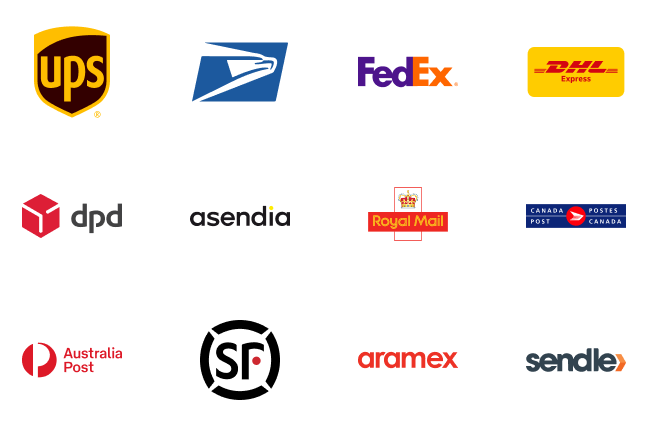Considering entering the fast-growing African eCommerce market? Shipping to Nigeria could be a great idea for your online business!
With a population of more than 195 million people, Nigeria is a nation being significantly shaped by eCommerce. But before you begin shipping to Nigeria, it’s important to better grasp its economic landscape, especially when it comes to cross-border trade and eCommerce. Here’s a detailed look at just that!
eCommerce Spending Slated to Grow Rapidly in Coming Years
Presently, there are more than 86 million Internet users in Nigeria, and Internet penetration in the country currently stands at 46 percent and rising. In addition, more than 28 million people use smartphones and mobile devices in the country, and most online shopping purchases are indeed made using mobile devices.
This isn’t at all surprising, as the growth of the eCommerce sector in Nigeria is fueled mostly by its fast-growing youth population, with the country’s median age being just over 18 years old. The country’s young, digitally-savvy population also conducts many eCommerce transactions on social media and online forums.
Currently, eCommerce spending in Nigeria stands at approximately $12 billion annually and is expected to increase sharply to $75 billion by 2025.
All in all, Nigeria’s combination of a rapidly-growing youth population, surging eCommerce spending, and rising Internet penetration make it a prime opportunity for cross-border online selling!
Many Local Online Marketplaces Thrive in Nigeria
Apart from carrying out eCommerce trading on social media, there are many online marketplaces for retailers interested in shipping to Nigeria from the U.S. and elsewhere in the world.
A few of these include:
- Konga.com
- Jumia.com
- Kara.com.ng
- PayPorte.com
- OLX.com
- VConnect
- Jiji.com
- Dealdey
- Ajebomarket
- Kaymu
- Printivo
- Obiwezy
Electronic Products and Fashion Items Remain Popular
When it comes to shopping online, Nigerians have their preferences. The top three product categories in the country include:
- Electronics and media products
- Fashion items
- Foods and supplements
Holidays Offer Prime Selling Times
Nigeria has many holidays that offer prime online selling opportunities to consider. Just a few of these include:
- New Year’s
- Valentine’s Day
- Mother’s Day
- Easter
- Workers’ Day
- Children’s Day
- Father’s Day
- Eid al Fitr
- Id El Kabir
- Islamic New Year
- Christmas
- Boxing Day
Shipping to Nigeria
Whether you’re shipping to Nigeria using USPS or any other courier, it is important that you abide by the basic rules, especially when it comes to restricted and prohibited items. Here’s a quick overview of just that!
Restricted items in Nigeria
- Frozen poultry
- Live or dead birds
- Pork and beef
- Refined vegetable oils
- Chemically-pure sucrose
- Fruit juice in retail packs
- Water, including mineral and aerated waters
- Medicaments
- Rethreaded and used thematic tires
Prohibited items in Nigeria
- Air pistols
- All counterfeit/pirated materials, including counterfeit coins
- Beads made of inflammable celluloid
- Exhausted tea
- Airmail photographic printing papers
- Indecent/obscene images, cards, books or engravings
- Matches made of white phosphorous
- Metal coins that are not legal tender in the country
A more exhaustive list of restricted and prohibited imports to Nigeria can be found here.
Import Duties Vary Greatly by Product Category in Nigeria
In order to make the most of cheap shipping from the U.S. and elsewhere to Nigeria, it’s important to consider tax and duty thresholds, VAT rates, and import duties in the country.
Nigeria uses a CIF (cost of insurance and freight) tax and duty calculation method and a $10 USD tax and duty threshold. The nation currently imposes a VAT of five percent, though this is due to increase to 7.5 percent in 2020.
Import duty rates in Nigeria vary considerably based on the product category. Mobile devices, computers, and cameras are only currently subject to a five percent import duty while books and documents face no import duties at all.
However, fashion items, toys, watches, games, and home appliances are all subject to a 20 percent import duty while luggage and dry food and supplements are taxed as high as 35 percent when imported into the country.
Be sure to use the Easyship shipping rates calculator to find the cheapest way to ship to Nigeria and accurately take import duties and tax rates into account!
Nigeria: One of Africa’s Leading eCommerce Markets
With its fast-growing eCommerce market and robust economy, Nigeria offers an excellent opportunity for growth-minded online merchants. Start shipping to Nigeria today by signing up for a free Easyship account and take your business into the thriving world of Nigerian eCommerce!
{{ watch-out-for-international-duty-and-tax }}















































.svg)
.svg)






.avif)
.avif)

.avif)
.avif)


.avif)


.avif)










.avif)
.avif)



.avif)
.avif)


.avif)
.avif)


.avif)



.webp)







.svg)





